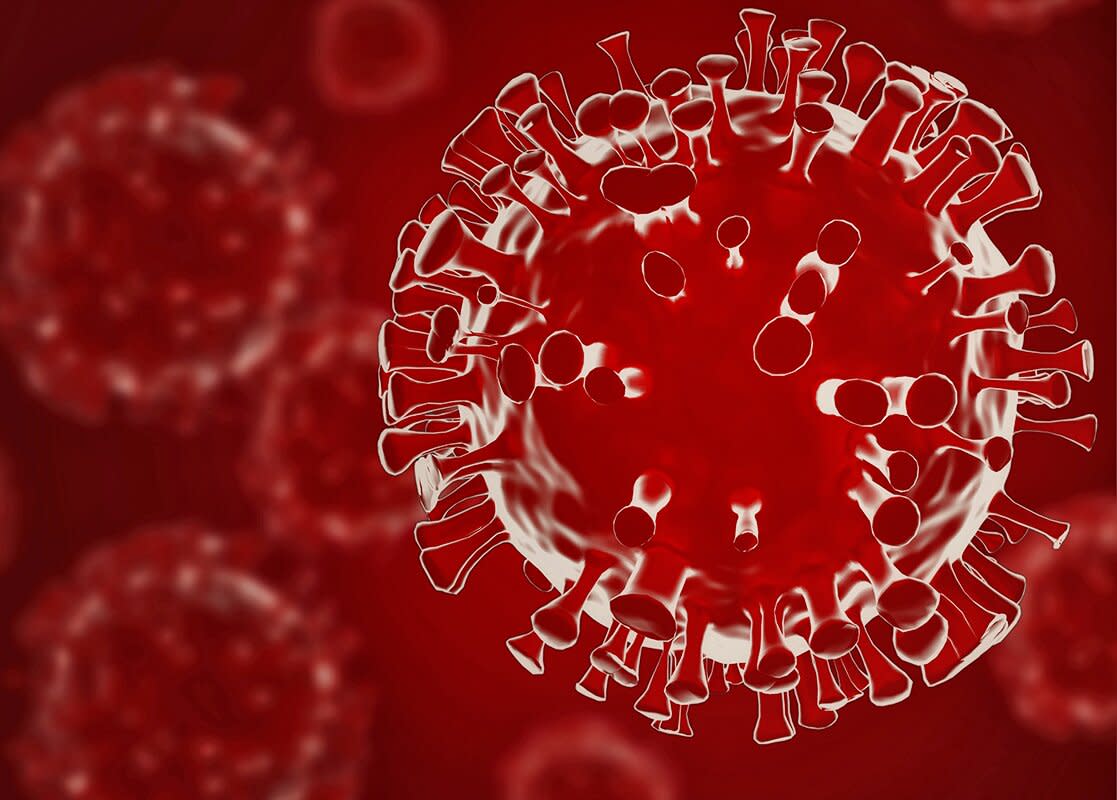What to Know Now About COVID Breakthrough Cases and the Delta Variant

Getty
About 57% of Americans ages 12 and up have been fully vaccinated against COVID-19, according to the CDC, but a small percentage of those people are still testing positive for the virus. We asked Dr. Reynold Panettieri, professor of medicine and pulmonary physician at Rutgers University's Robert Wood Johnson Medical School, about the likelihood of getting a breakthrough infection and the latest information on the highly contagious Delta variant.
What is a breakthrough infection?
In the case of COVID, a breakthrough means that you get an infection two weeks after you're fully vaccinated. For Moderna or Pfizer in two doses, this would be 14 days after your second dose. You should have a significant amount of immunity, but if you get an infection, that is called the breakthrough infection.
Breakthrough infections are a problem with virtually every vaccine that's ever been used. No vaccine is 100 percent effective. But there's no doubt the approved COVID-19 vaccines are safe and effective. The people who are most at risk for serious illness are still those who have not been vaccinated.
How common are breakthrough COVID-19 cases?
Data on reported cases shows that less than 0.003% — or about 5,000 people out of the 161 million Americans who have been vaccinated — have had breakthrough cases.
There are a fair number of breakthrough infections that are not reported, so the precise number is likely higher, it could even be a gross underestimation.
Listen below to our daily podcast PEOPLE Every Day for more on the COVID-19 Delta variant.
You also have to realize that our measurements and metrics of determining infection could be due to dead virus and not active virus. We do something called PCR, which detects viral RNA. We say, "Okay, that's equivalent to an infection," but that viral RNA may be there for some time and not be associated with active virus. This is technical stuff that's going to get lost on most people. But just because you're positive and you're asymptomatic doesn't necessarily mean, and this is the important point, that you're infectious, you see.
Are some people more likely than others to get infected after being fully vaccinated?
The data really hasn't shown a more susceptible group, but it stands to reason that patients with chronic illness or who are immunocompromised are more vulnerable. It's hard to generalize but they may still get some protection from the vaccine and have less severe disease.
The CDC report has not shown clusters in the elderly or with specific associated infections.
Related Video: Fully Vaccinated Americans Can Go Outdoors Without Masks, CDC Says in New Guidance
Does the more-contagious Delta variant make breakthrough cases more likely?
The Delta variant has greater potential to infect people; there's no doubt about that. But the people at greatest risk are the unvaccinated. Every vaccine approved in the United States has shown efficacy against the Delta variant. We're not seeing clusters of breakthroughs associated with one vaccine or another.
If you're vaccinated and you get COVID, how likely are you to experience severe symptoms?
The breakthrough cases that [result in hospitalization and death] are extremely uncommon. Most people will be asymptomatic or may have the symptoms of a common cold. But there's going to be an uptick in severe illness and death among those who are not vaccinated.
What preventative measures do you recommend? Do fully vaccinated people need to wear masks?
Follow the CDC and your state and local government guidelines. If you're in large groups or in confined spaces, I think the use of a mask is a reasonable approach. But the best protection is to get vaccinated. If you're vaccinated and you develop COVID-19, you'll likely experience a milder version of the illness.
For more Coronavirus and Health news, pick up a copy of PEOPLE on newsstands Friday

